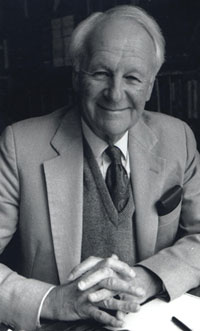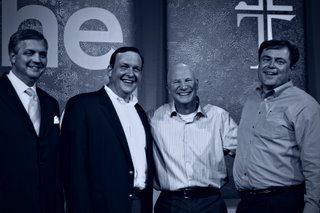
I recently talked to a friend who was visiting new churches after relocating. After visiting one particular church he went up and visited with the pastor who asked him, “What did you think of my sermon?” As I preacher I shudder to think of asking that question to a first time visitor. Why is that? Am I afraid of an honest critique? Is it because my pride is so deeply seated that I cannot bear the thought of a needed “objective” opinion? The answer is, “yes!” But it should not be so. If I am unclear or lame in my preaching I need to hear that, often!
All of these thoughts came to a head this past Sunday afternoon as I sat in our church listening to a number of men teaching in our version of a homiletics lab. In case you’re curious we adapted the material from
this which I would highly recommend.
While these men taught I found myself critiquing their preaching as well as my own. That was unexpected! Listening to these men [who by the way did an excellent job] I was struck by an area in my own preaching that is weak and I think it might be helpful issue to address for other young, aspiring preachers like myself.

I found myself furiously writing notes about the sermon when I realized that there were many excellent points they were making that I simply could not write down or digest in the time that they were presenting them. Things like word definitions, poignant quotes, or deep insights were often lost on me because I was caught somewhere between writing/thinking/digesting and applying. In the end I had cryptic notes, confused definitions and half recorded quotes. I looked at my notes when they were done and asked myself, “What do I do with this?” No preacher wants his people to walk away with those thoughts, at least I hope not.
But here’s the interesting thing, these guys were not preaching fast or giving the information rapidly [did I mention that they did an excellent job]. They were speaking in a normal pace and providing the information fluidly. But then it dawned on me. Even a regular pace is often too fast for a person who is not thoroughly familiar with the material you are preaching.
I was struck with the reality that my key quotes and definitions are probably lost on the audience because I know them so well after 20-30 hours of sermon prep that I just assume that they can keep pace. I do not think that is accurate anymore. So in this moment of critiquing another brother’s preaching, my own short comings came into brilliant focus. I need to remember that the people who are listening to me do not have the benefit of hours of study that I have. They are hearing it for the first time and I need to be more careful here. I need to slow down on the points that are critical in the sermon and give people a chance to absorb.
So how can we [you] improve in being better conveyors of information? I have no absolute answers here, just some thoughts that might help.

1. Repeat KEY concepts regularly. As some have said, tell them what you are going to tell them, tell them and then tell them what you told them.
2. Define words with precise terms – the fewer the better so that they get THE meaning, not all possible meanings.
3. Repeat the definitions slowly.
4. Read quotes slowly and repeat them if they need to be written for reflection.
5. If you use PowerPoint, put compelling quotes or definitions on the screen so that they can go back and write down what they missed.
6. Make clear in your preaching the point they must grasp. Use expressions like, “Here’s the point I want you to get.”
7. Tell them where they need to sit up and listen if you desire them to absorb, not record. Rick Holland is excellent at this.
8. Summarize large points into a few cogent, clear-cut words or phrases that make the point. John MacArthur is a master of the synonym and this concept. He’ll repeat an idea with so many “like” words that every person is able to grasp the idea he is making with a word association.
9. Confide these things in a good friend who will give you feedback regularly.
I hope you’ll take encouragement from these words about my shortcomings and maybe it will help some as it has helped me.
Pretend I am that guy visiting your church for the first time and you just asked me, “What did you think of my sermon?”
For His Glory!
 Father, we have sinned. We confess that we do not listen to your Word. We read it and hear it, but we do not obey it. We say, “That was a great sermon!” but it doesn’t make a difference, because we are not willing to change.
Father, we have sinned. We confess that we do not listen to your Word. We read it and hear it, but we do not obey it. We say, “That was a great sermon!” but it doesn’t make a difference, because we are not willing to change.










